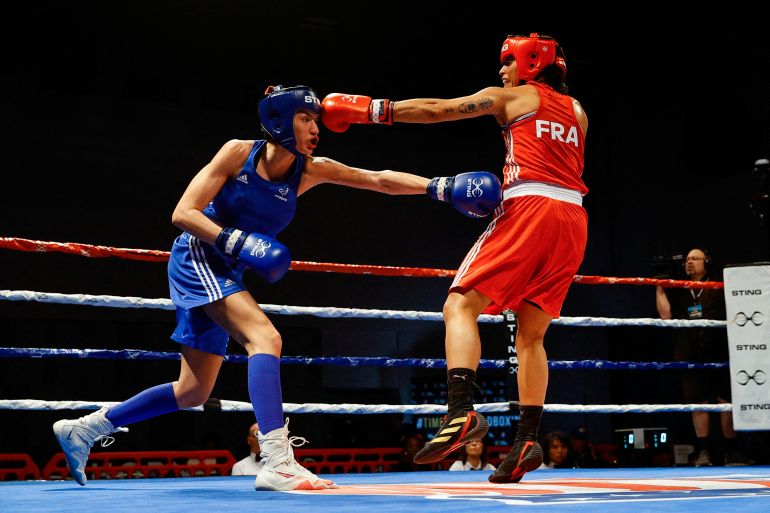All French female boxers out of world championships over genetic test row
World Boxing will oversee Olympic regulation and has introduced mandatory genetic testing for female athletes above 18 years old.

Published On 4 Sep 20254 Sep 2025
French female boxers have been barred from competing at the inaugural World Boxing Championships in Liverpool after failing to meet a deadline for a genetic sex test that the French Boxing Federation (FFBoxe) said was incompatible with French law.
World Boxing, which issued a list of competitors for Thursday’s opening rounds with no French entrants included, said it would not comment on individual cases but added that it had warned all federations about its policy.
Recommended Stories
list of 4 itemsend of list
FFBoxe said it was informed on July 21 that all female athletes needed to provide results of a “femininity test” during registration for the competition, which started on Thursday.
French law prohibits the federation from conducting the tests domestically or abroad without a medical prescription, FFBoxe said, prompting it to turn to a laboratory in Leeds upon World Boxing’s recommendation. Despite assurances that results would be delivered within 24 hours, they were delayed.
“With, as a consequence, the exclusion of our athletes as well as other female boxers from foreign delegations who also found themselves trapped,” FFBoxe said in a Thursday statement.
“This is a profound injustice,” it added. “Our athletes are being punished for a bureaucratic failure and a policy that was communicated far too late.”
World Boxing argues that all federations had been warned on August 21.
“Receiving results for sex-testing can take 48 hours. Any tests completed later than 1 September would jeopardise your athlete’s entry into the Official Draw and Competition. Please consider your arrival time to the UK if you require sex-testing in the UK,” the governing body said in a statement.
Advertisement
“World Boxing and its partners have been working with multiple National Federations over the last three weeks to facilitate access to testing facilities at several locations in Great Britain and many boxers that are competing at the competition have been tested via this process.”
World Boxing, which will oversee boxing at the 2028 Los Angeles Olympics, introduced mandatory genetic testing in May for female athletes above 18 years of age to confirm eligibility for competition.
Its president, Boris van der Vorst, reiterated on Wednesday that it had introduced the tests to ensure safety and fairness.
An FFBoxe spokesperson told the Reuters news agency on Thursday it had still not received the test results from the laboratory, which he did not name, and was looking into the possibility of an appeal.
French boxer Maelys Richol said on Instagram that a whole year of work had been wasted due to poor management.
“It is extremely hard to take. We are frustrated, angry, and deeply disappointed,” she said.
The controversy reignited debates surrounding gender verification in sport.
Algerian boxer Imane Khelif, who won gold in the women’s welterweight division at the Paris Games last year, has appealed to the Court of Arbitration for Sport (CAS) over World Boxing’s decision to bar her from future events unless she undergoes genetic sex testing. Sport’s highest court, CAS, dismissed her request to suspend the ruling while her case is heard.
Khelif was previously disqualified from the 2023 World Championships by the International Boxing Association following sex chromosome tests. However, she competed in Paris after the International Olympic Committee stripped the IBA of its governing status and organised boxing events independently.
Van der Vorst later apologised for naming Khelif publicly in the announcement about mandatory testing, acknowledging that her privacy should have been respected.
Khelif opted not to participate in a World Boxing tournament in the Netherlands in June amid ongoing scrutiny of the policy.
